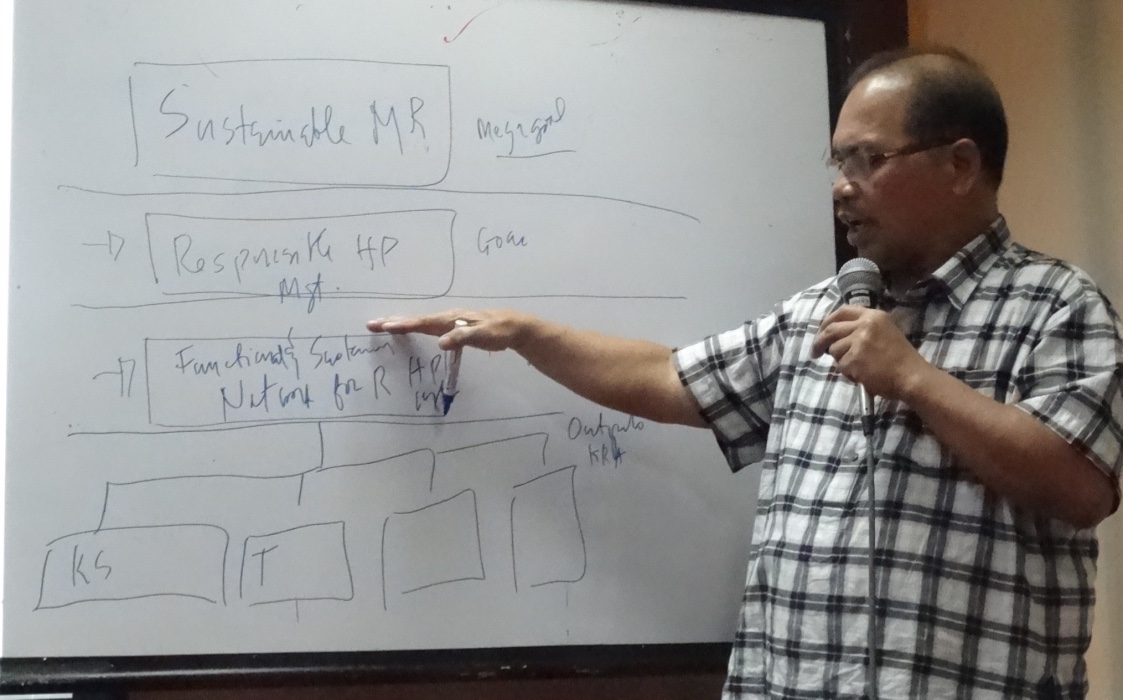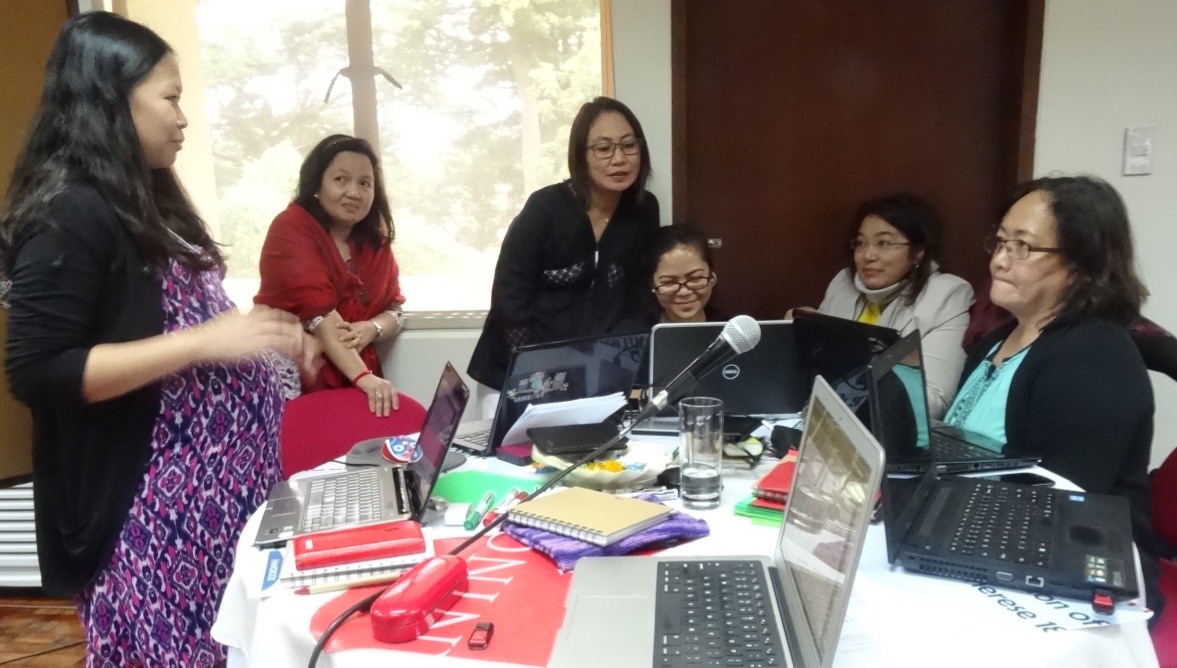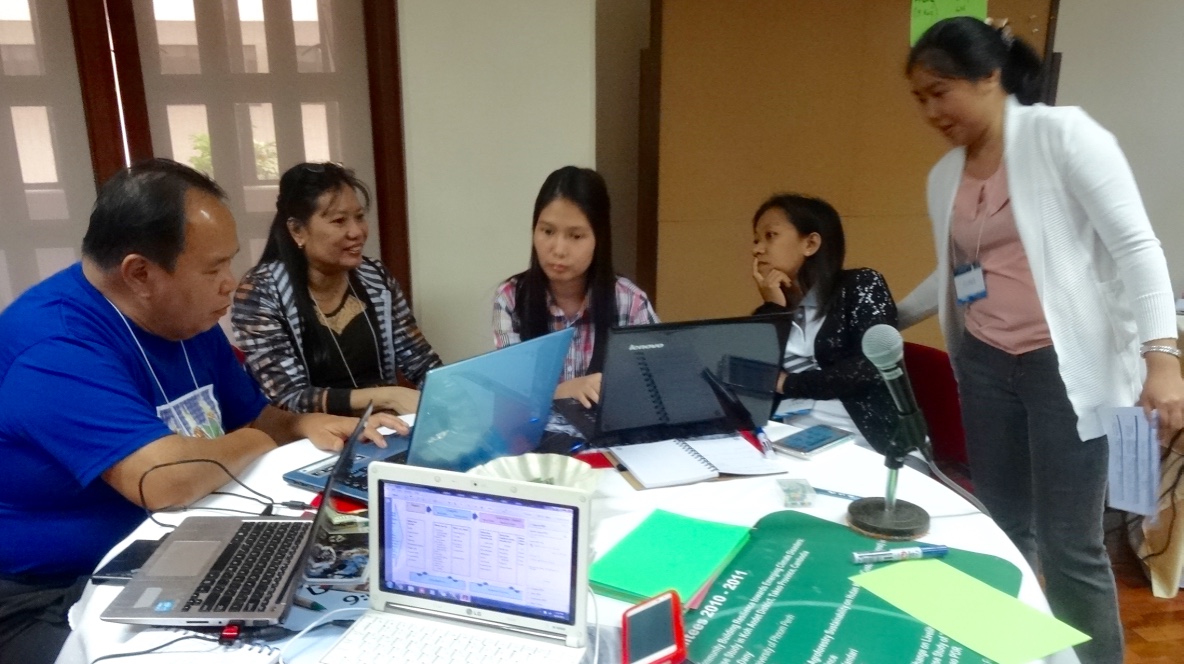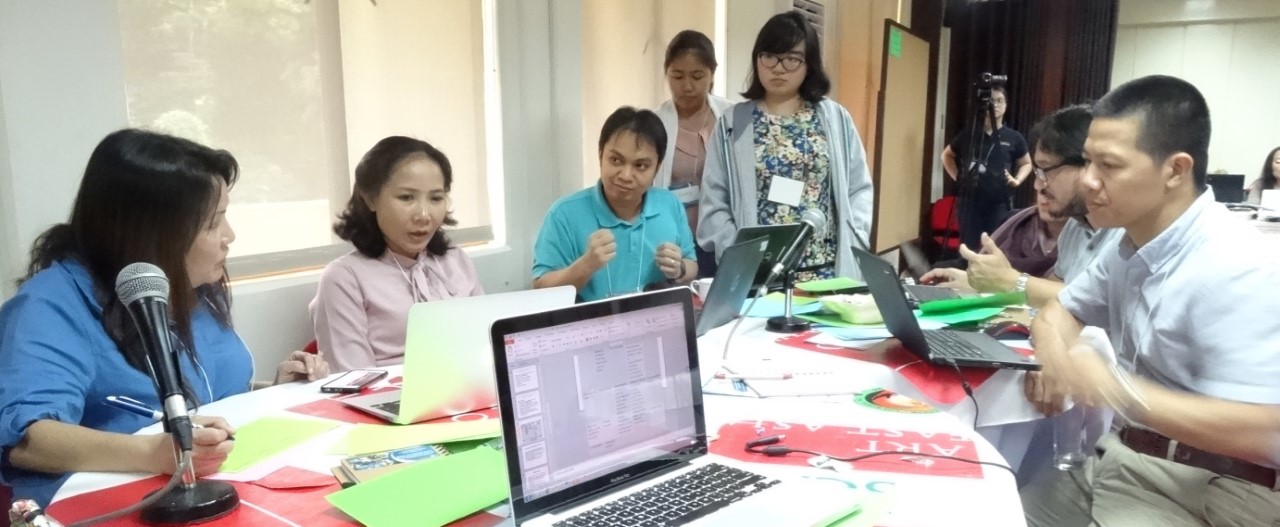This training workshop equipped six partners in two pilot sites of the SEARCA project Piloting and Upscaling Effective Models of ISARD; two SEARCA staff members; and 10 interested faculty members and development practitioners from agriculture universities, line agencies, and a national research and development agency in the five Southeast Asian countries mentioned above.
In his welcome remarks at the opening program of the training-workshop, Dr. Gil C. Saguiguit, Jr., SEARCA Director, said that this is the third of a series of learning events that SEARCA has rolled out along the Center’s trek in Piloting and Up-Scaling Effective Models of ISARD within the Center’s 10th Five-Year Plan. “Through two pilot projects in the Philippines, SEARCA walks the talk in its quest to make a meaningful difference in the lives of farmers and rural communities through active engagement of, and collaboration with, rural communities and institutions; facilitating increased and better communication among major stakeholders; and strengthening their capabilities,” he said. Dr. Saguiguit narrated how the two pilot sites of the project in Victoria, Oriental Mindoro and Inopacan, Leyte launched their respective projects to improve rural livelihoods with calamansi and jackfruit as flagship commodities in February and March 2016, respectively.
He elaborated that SEARCA had engaged in action research like these pilot projects in past decades, such as “social laboratory” and “integrated area development” projects as well as pilot testing of farm technologies. “Our almost 50 years of experience in ARD provides a fertile ground for harvesting lessons, principles and concepts, and good practices and technologies that characterize an effective agricultural system or ISARD model,” he beamed.
The Project on Piloting and Up-scaling Effective Models of ISARD aims to:
- Showcase need-based productivity-enhancing and environment-friendly technologies and practices and other critical elements of people-centered development;
- Draw lessons and identify best practices that can be replicated and expanded in other areas;
- Institutionalize active community and local institutions’ participation to ensure sustainability of ISARD models and projects; and
- Identify anticipated outcomes and impact, and use them to formulate adaptive measures/interventions as well as to integrate the design of impact evaluation studies within the Project design.
In June 2015, the Center offered a training-workshop on Developing, Planning, and Implementing ISARD Projects to a total of 21 participants comprising 10 project partners and 11 other interested participants from three Southeast Asian countries and the Philippines. In this training-workshop, they applied an innovative and integrative systems-based research framework, particularly commodity system approach, commodity trap analysis, and smallholder empowerment in packaging an ISARD project proposal, mindful of adaptive project management principles.
In May 2016, SEARCA again invited its pilot project partners to send representatives to a forum-workshop on Innovation Platforms, Advisory Services, and Knowledge Management in ISARD at SEARCA. Here, seven of their representatives joined 18 other participants from five Southeast Asian countries and the Philippines and distilled emerging and best practices in innovation platforms (IP), rural advisory services (RAS), and knowledge management (KM) as pathways toward ISARD.
Aside from equipping participants to track whether the project and its various components on the ground are traversing their intended outcome pathways, the workshop on Results-based Monitoring and Evaluation for ISARD aimed to enable them to follow whether resources or inputs and implementation of project activities are on time; and to safeguard transparency, accountability, and integrity in the project. Dr. Saguiguit expressed appreciation of the participants’ interest in the training-workshop, most especially those who were not necessarily part of the SEARCA pilot project. “We hope the lessons you will learn here would be just as gainful for your initiatives along ISARD. We will be eager to learn from you too in your own journey of serving the very-important agricultural and rural development communities in your respective countries or localities,” he said.

Developed and coordinated by Prof. Wilfredo B. Carada of the University of the Philippines Los Baños (UPLB) College of Public Affairs and Development, the training-workshop covered five modules, as follows: (1) Review of ISARD M&E; (2) Core purpose, scope, stakeholders, organization and management for ISARD RBME; (3) ISARD results and logical framework; (4) Operationalization of the framework, data collection tools, data management, reporting, learning and action, report utilization and dissemination; and (5) Sustainability of the ISARD system.
Prof. Carada’s expertise and experience on the subject coupled with his excellent facilitating skills made the RBME concepts, processes, approaches and strategies understandable and digestible. Prof. Carada’s irrepressible sense of humor and graphic examples likewise provided a much-needed comic relief to the otherwise serious tone and heavily conceptual nature of the training.
Tasked to immediately apply what they learned from the lectures and discussions, the participants – in three workshop groups and ably assisted by facilitators from the UPLB College of Human Ecology – came up with their expected outputs; these are the RBME plans for their respective projects. The groups presented their outputs in plenary sessions where their ideas were tested and further improved. (The “Leyte group” of Filipino participants worked on Piloting Models of ISARD: Strengthening Linkages among Farmer, Government and Private Sectors for Inclusive, Sustainable Agriculture and Rural Development in Inopacan, Leyte, while the “Mindoro group” tackled Revitalizing the Calamansi Industry in Victoria, Oriental Mindoro through Strengthening Linkages among Farmers, LGU, NGAs, SUCs, CSOs, and the Private Sector. The third group from Cambodia, Lao PDR, Thailand, and Vietnam worked on Sustainable Hydropower Development Network of the Greater Mekong Subregion.)

Although already considered a veteran in the implementation of research and development projects, Dr. Jose L. Bacusmo from the Visayas State University found the exercise on developing the plan of operations after the output pathway has been laid out to be extremely important. According to him, this is helpful in charting the project direction, so that one does not lose sight of the grand picture or the ultimate goal of the project.

Dr. Seng Mom from the Royal University of Agriculture in Cambodia declared that this workshop is her first exposure to RBME and found the idea of “logic” in project (or M&E) design to be particularly insightful. She says she is already trying to figure out how she can incorporate her learnings from the course in helping craft the strategic direction for her university (and specific projects in various stages of conceptualization and development) – not just with respect to M&E but even from the design stage of the project cycle which was also touched on in the lecture-discussions. (Ines Vivian D. Domingo and Maria Celeste H. Cadiz)
